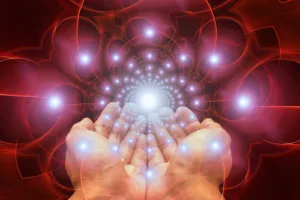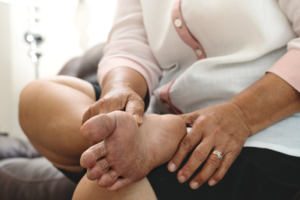
Depression is a complex mental health condition that affects millions of people around the world. It can be caused by a variety of factors, including genetics, environmental factors, and life events. Depression can have a significant impact on a person’s life, affecting their ability to function and enjoy daily activities. While there are many treatment options available for depression, some people prefer natural and alternative therapies. One such therapy is Reiki, an ancient Japanese healing practice that can help alleviate the symptoms of depression. In this article, I will discuss how Reiki can help treat depression, the benefits of Reiki, scientific research on Reiki and depression, how to find a qualified Reiki healer, what to expect during a Reiki session, additional techniques to complement Reiki treatment, and testimonials from individuals who have experienced Reiki for depression.
Understanding Depression
Depression is a mental health condition characterized by persistent feelings of sadness, hopelessness, and loss of interest in activities that were once enjoyed. It can also cause physical symptoms, such as fatigue, insomnia, and changes in appetite. Depression can range from mild to severe and can last for weeks, months, or even years. It is a common condition, affecting approximately 264 million people worldwide, according to the World Health Organization (WHO).
Depression can be caused by a variety of factors, including genetics, environmental factors, and life events. People who have a family history of depression are more likely to develop the condition. Environmental factors, such as abuse, neglect, or trauma, can also contribute to the development of depression. Life events, such as the loss of a loved one, a relationship breakdown, or financial difficulties, can also trigger depression.
What is Reiki and How it Works
Reiki is an ancient Japanese healing practice that uses energy to balance the mind, body, and spirit. The word Reiki comes from the Japanese words “rei” and “ki,” which mean “universal life force energy.” Reiki practitioners use their hands to channel this energy into the body, promoting healing and relaxation.
Reiki is based on the idea that there is a life force energy that flows through all living things. When this energy is blocked or disrupted, it can cause physical, emotional, and mental health problems. Reiki practitioners believe that by placing their hands on or near the body, they can stimulate the flow of energy and promote healing.
Reiki and Depression: The Benefits
Reiki can be an effective treatment option for depression. It promotes relaxation, reduces stress and anxiety, and can help alleviate the physical and emotional symptoms of depression. Reiki can also help improve sleep quality, increase energy levels, and promote a sense of well-being.
One of the primary benefits of Reiki is its ability to promote deep relaxation. During a Reiki session, the recipient lies down or sits comfortably while the practitioner places their hands on or near the body. The recipient may feel a warm or tingling sensation, or they may simply feel deeply relaxed. This relaxation response can help reduce stress and anxiety, which are common symptoms of depression.
Reiki can also help alleviate physical symptoms of depression, such as fatigue, insomnia, and aches and pains. By promoting relaxation and reducing stress, Reiki can help improve sleep quality and increase energy levels. This can help individuals with depression feel more rested and energized, improving their overall sense of well-being.
Scientific Research on Reiki and Depression
While there is limited scientific research on the effectiveness of Reiki for depression specifically, some studies have shown promising results. A 2015 study published in the Journal of Evidence-Based Complementary and Alternative Medicine found that Reiki was effective in reducing depression, anxiety, and stress in women undergoing treatment for breast cancer. Another study published in the Journal of Alternative and Complementary Medicine in 2010 found that Reiki was effective in reducing symptoms of depression and anxiety in college students.
While more research is needed to fully understand the effects of Reiki on depression, these studies suggest that Reiki may be a useful adjunct therapy for individuals with depression.
How to Find a Qualified Reiki Healer
If you are interested in trying Reiki for depression, it is important to find a qualified Reiki healer. Look for a practitioner who is certified by a reputable organization, such as the International Association of Reiki Professionals (IARP) or the Reiki Alliance. You can also ask for recommendations from friends or family members who have tried Reiki.
When choosing a Reiki practitioner, it is important to trust your instincts. Choose someone who makes you feel comfortable and who has experience working with individuals with depression. You may also want to schedule a consultation with the practitioner to discuss your specific needs and goals for Reiki treatment.
What to Expect During a Reiki Session
During a Reiki session, the recipient lies down or sits comfortably while the practitioner places their hands on or near the body. The recipient may feel a warm or tingling sensation, or they may simply feel deeply relaxed. The practitioner will move their hands around the body, focusing on areas where energy is blocked or disrupted.
Reiki sessions typically last between 30 and 90 minutes, depending on the individual’s needs. The number of sessions needed will vary depending on the severity of depression and the individual’s response to treatment. Many people find that they feel more relaxed and rejuvenated after a Reiki session, and some people may experience a sense of emotional release.
Additional Techniques to Complement Reiki Treatment
While Reiki can be an effective stand-alone treatment for depression, there are other techniques that can complement Reiki and promote overall well-being. These techniques include mindfulness meditation, yoga, and acupuncture.
Mindfulness meditation is a technique that involves focusing on the present moment and accepting thoughts and feelings without judgment. This can help reduce stress and anxiety, which are common symptoms of depression. Yoga is another technique that can promote relaxation and reduce stress. It involves a series of postures and breathing exercises that can help improve flexibility, strength, and balance.
Acupuncture is an ancient Chinese healing practice that involves the insertion of thin needles into specific points on the body. It can promote relaxation, reduce stress and anxiety, and alleviate physical symptoms of depression. Like Reiki, acupuncture is based on the idea that there is a life force energy that flows through the body, and that when this energy is blocked or disrupted, it can cause health problems.
Testimonials from Individuals Who Have Experienced Reiki for Depression
Many individuals with depression have found Reiki to be a helpful and effective treatment option. One individual shared, “Reiki has helped me feel more relaxed and less stressed, which has improved my overall sense of well-being. I have also noticed a reduction in physical symptoms of depression, such as fatigue and aches and pains.”
Another individual shared, “I was skeptical about Reiki at first, but after trying it, I was amazed at how relaxed and rejuvenated I felt. It has helped me manage my depression symptoms and has given me a sense of peace and calm.”
Free Consultation and Guidance for Reiki Treatment
If you are interested in trying Reiki for depression, I offer a free consultation and guidance to help you find a qualified Reiki healer and develop a treatment plan that meets your specific needs. Contact me today to schedule your free consultation.
Reiki as a Natural and Effective Treatment Option for Depression
Depression is a complex mental health condition that can have a significant impact on a person’s life. While there are many treatment options available, some people prefer natural and alternative therapies. Reiki is an ancient Japanese healing practice that can help alleviate the symptoms of depression by promoting relaxation, reducing stress and anxiety, and improving sleep quality and energy levels. While more research is needed to fully understand the effects of Reiki on depression, studies suggest that it may be a useful adjunct therapy for individuals with depression. If you are interested in trying Reiki for depression, be sure to find a qualified practitioner in your area and discuss your specific needs and goals for treatment. Also, HERE you can find more information about the overcome depression program at Reiki Dome.




